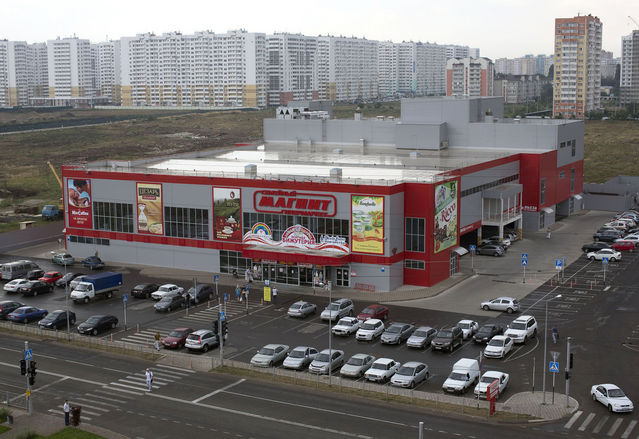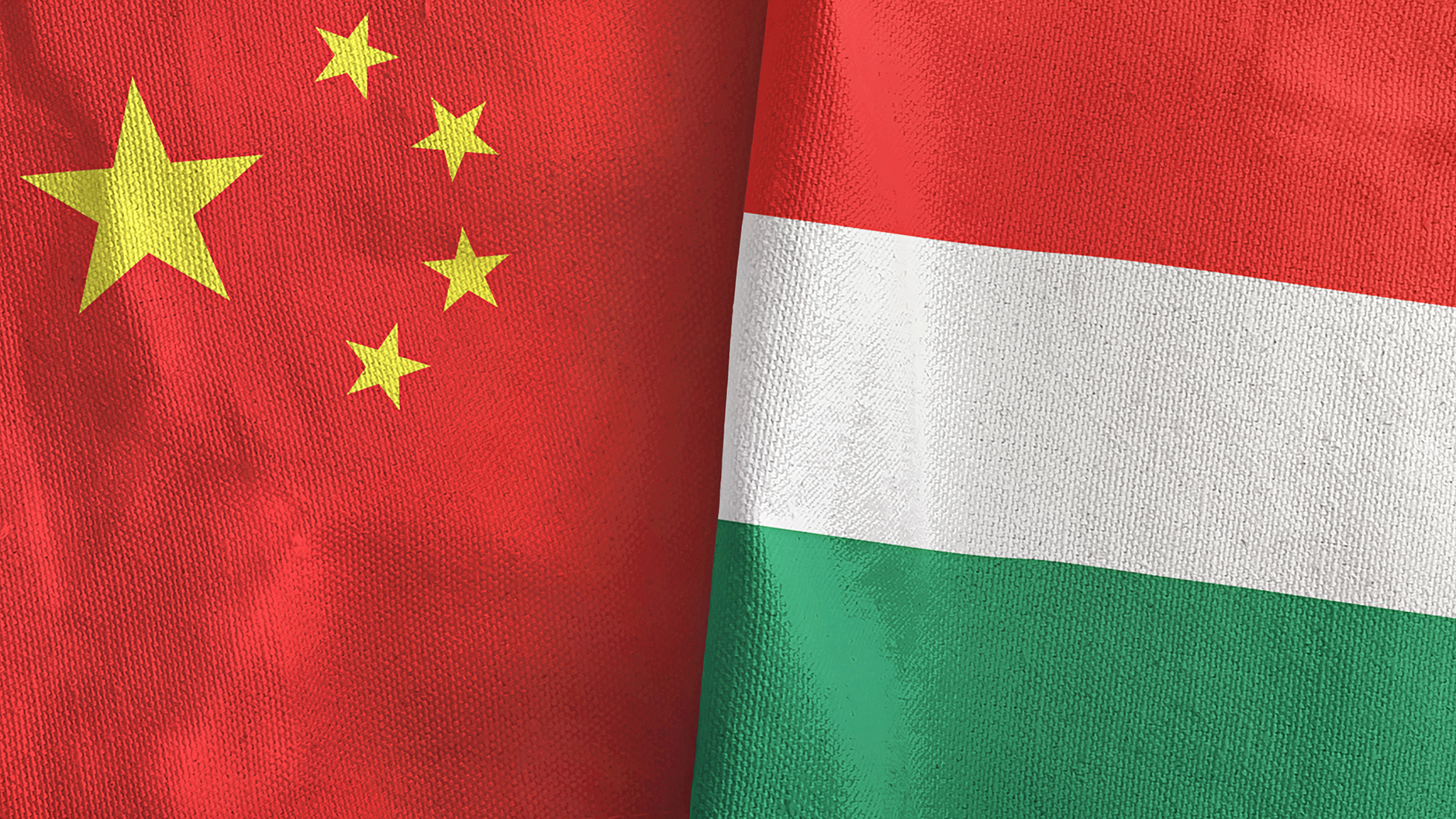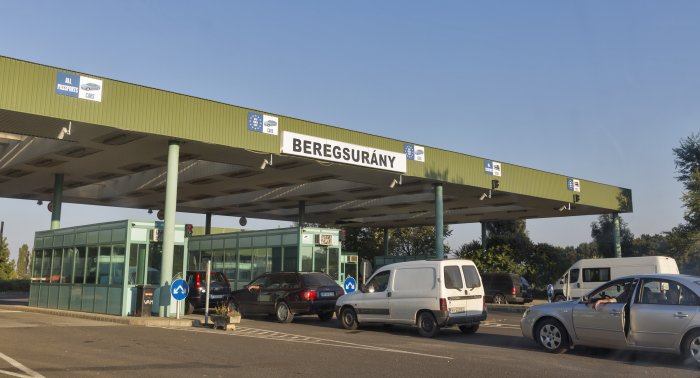Magnit attracts Hungarian foodstuffs

From the Budapest Business Journal print edition: Russia’s biggest FMCG retailer Magnit has tripled its purchases in Hungary over the past two years – by the end of this year the amount may reach 500 truckloads. In the meantime, a giant Magnit development is under way in northeast Hungary: a truck hub is being constructed near Nyíregyháza. Celta, the logistics subsidiary of Magnit, will operate the new cargo center, which will create 2,500 new workplaces.
“Magnit’s logistics hub is a great opportunity for Hungary to increase her export of foodstuffs,” Péter Szijjártó, Hungarian government commissioner of foreign trade affairs said at a press conference last December. “The future truck base may become the guarantee of long-term export activity into Russia,” he added.
The press conference was organized after the Hungarian government signed a declaration of intent giving full support to the establishment of the new truck base. At the same time Hachatur Pombukhchan, Magnit’s president declared that “We consider Hungary a strategic partner in logistics, and we are determined to commit ourselves to long-term cooperation.”
Magnit has been increasing its purchases in Hungary steadily lately: In 2012, it bought foodstuff worth EUR 12 million altogether, one-tenth of the entire Hungarian agricultural export to Russia. “In 2013, this quantity grew further; out of the 200 truckloads of fresh vegetables which Magnet purchases in Europe per week, 10% already comes from Hungary,” Szilárd Kiss, Hungary’s commercial attaché to Moscow and government delegate supervising the Magnit development project told the Budapest Business Journal.
“My initial idea was conceived at the time when Magnit was still buying produce exclusively from Western Europe,” he continued. “I thought Magnit should import part of the foodstuffs directly from Hungary; by doing so it would get fresher and better-quality goods, and the produce would also be cheaper as in-between wholesalers would be removed from the chain. High-quality Hungarian produce would then be present on Magnit’s shelves in a competitively priced way,” Kiss pointed out.
“This is why I came up with the idea that Celta, Magnit’s fleet management company, should establish a cargo truck hub in Hungary. One advantage of that is going to be the 2,500 workplaces created by the new enterprise. The other advantage is going to be the great export opportunities offered by the logistics center to Hungarian providers.”
The Hungarian Investment and Trade Agency (HITA) stressed that all possible support will be given to Magnit’s new development, in order to retain the Russian retail chain in Hungary and avoid competing logistics centers in Poland or the Baltics.
It is also crucial for Hungary to improve its balance of trade with regard to Russia. In 2012, Hungary imported twice as much from Russia as it exported there. Hungary imported goods, primarily gas and oil, worth $8.3 billion, while it only exported $3.3 billionof mostly processed goods, leaving a $5 billion balance of trade deficit.
“The increase in agricultural export is supposed to play a crucial role in [reducing] that, all the more so as the deficit is largely due to the gradual erosion of the once massive Hungarian agricultural export,” Sándor Fazekas, Minister of Agriculture said.
In the 1980s, Hungary exported large amounts of agricultural produce and foodstuffs to the Soviet Union on a barter basis, so foreign trade relations were necessarily balanced. After the political transition, this changed. Firstly, dollar-based foreign trade replaced Hungarian-Russian barter in 1993. Secondly, the disintegration of the USSR and the emergence of successor states often disrupted long-established trade relations. Thirdly, the privatization and subsequent downsizing of Hungarian companies affected the scale of trade in a negative sense.
Since 2011, however, Hungarian agricultural exports into Russia have started to increase again, by about 25% annually. The increase can be attributed largely to the export of breeding animals, seeds, and fodder farming technologies. As far as breeding animals are concerned, the export of Hungarian cattle is already expanding successfully; furthermore, Russia is showing keen interest in the establishment of goose and duck breeding plants operating on the basis of Hungarian technologies.
The Hungarian Minister of Agriculture has pointed out that Russia is making efforts to build up a modernized agricultural sector that, in the long run, would make the country self-sufficient. At the moment, however, the country depends to a great extent on imports to meet its food supply needs.
Magnit: The brief
Magnit’s headquarters is located in Krasnodarsk in Southern Russia. The company’s chain of retail units, however, covers the whole country except for the far east; there are no Magnit outlets east of Omsk. Magnit runs 200 supermarkets, 7,200 convenience stores, and 700 drug stores in total.
Turnover for 2013 was reported at $18 billion. Magnit is listed on the London stock exchange; its market capitalization exceeds $28 billion.
Magnit’s controlling stakeholder, Sergey Nikolaevich Galitski, ranked no. 138 on the Forbes list of the world’s wealthiest individuals as of March 2013.
SUPPORT THE BUDAPEST BUSINESS JOURNAL
Producing journalism that is worthy of the name is a costly business. For 27 years, the publishers, editors and reporters of the Budapest Business Journal have striven to bring you business news that works, information that you can trust, that is factual, accurate and presented without fear or favor.
Newspaper organizations across the globe have struggled to find a business model that allows them to continue to excel, without compromising their ability to perform. Most recently, some have experimented with the idea of involving their most important stakeholders, their readers.
We would like to offer that same opportunity to our readers. We would like to invite you to help us deliver the quality business journalism you require. Hit our Support the BBJ button and you can choose the how much and how often you send us your contributions.









